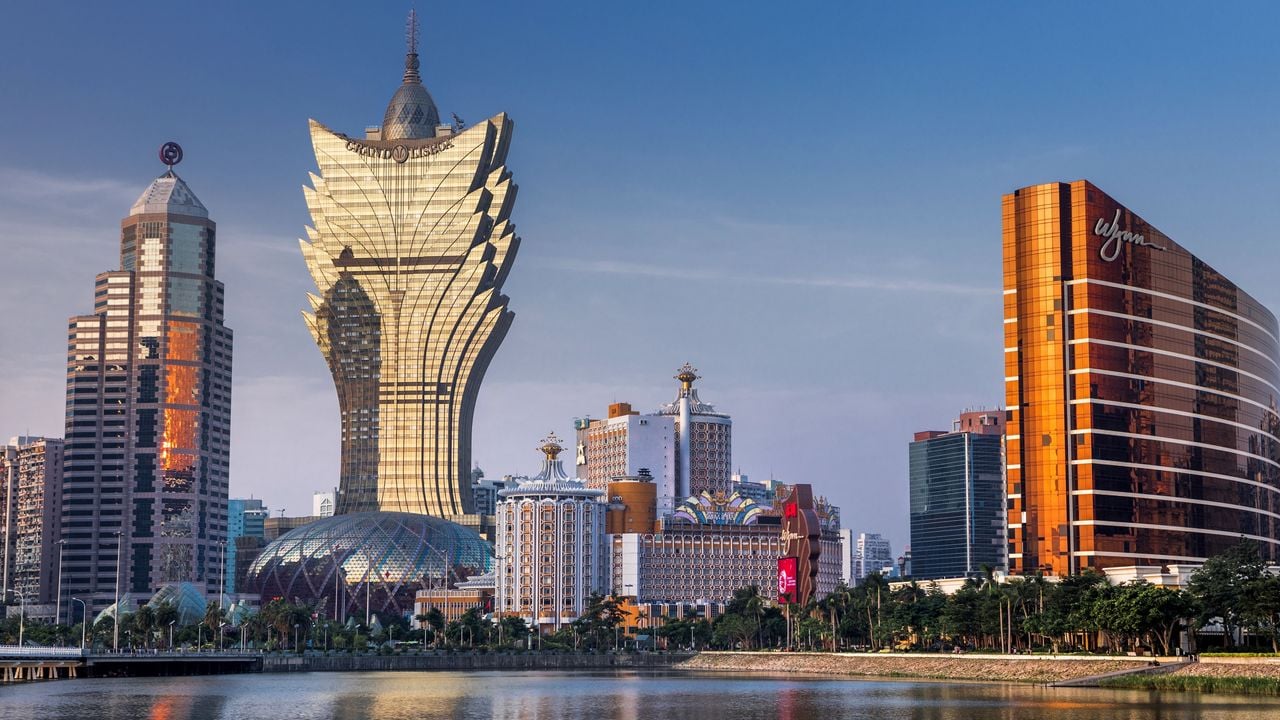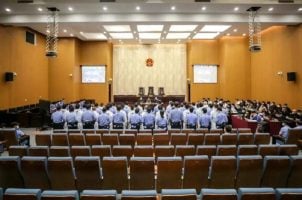IMF: Climate Change Could Impact Macau’s Casinos More than New Gambling Laws
Posted on: April 19, 2022, 05:46h.
Last updated on: April 19, 2022, 11:31h.
Macau has been dependent on its casinos for a large part of its economic success for years. Updated gambling laws will reduce that dependency. But the International Monetary Fund sees a bigger impact coming through environmental changes.

Macau is in the middle of a transformation almost as big as the transition from Portuguese to Chinese control in 1999. Lawmakers are close to finalizing new gambling laws that will completely alter the casino landscape.
There are still a lot of questions revolving around how Macau’s gaming industry will look after the final approval of the laws. However, the Chinese SAR will likely see economic improvements over the next few months, despite the uncertainty.
Climate changes, though, could impact the local economy well into the future, according to the International Monetary Fund (IMF). Likely the only way to prevent this from happening is to start making plans now.
Macau Faces Sea Threat
IMF Mission Chief for Macau, Ara Stepanyan, told the South China Morning Post (SCMP) that Macau is facing a troubling future. The city’s economy will improve by 15.5% this year. However, trouble is looming that could wipe out any improvement.
Rising sea levels threaten Macau. Stepanyan points out that the level is rising at an average of 2.4mm (0.09″). While this may not seem like much, it’s been continuing to rise over the past two decades. This means that it is now 1.6″ higher than it was 20 years ago.
It is expected that the degree and frequency of climate-related disasters such as cyclones and coastal floods will increase. Some critical infrastructures are at risk of being below the annual flood level within 10 years,” states IMF Mission Chief for Macau Ara Stepanyan.
In order to counter the increasing threat, Macau will need to focus more heavily on public investment and prevention plans. The government has already begun to introduce certain measures. But more is needed.
This isn’t the first time the subject of the sea level threat has been the topic of conversation. There have been similar discussions in previous years, including in 2019. However, with the level increasing more rapidly than before, the subject is finding renewed interest.
Time to Respond is Now
Big storms in recent years, including Typhoon Hato in 2017 and Typhoon Mangkhut in 2018, showed the impact of climate change and rising sea levels on Macau. Hato was among the worst storms to hit the area in decades. Immediately after that saw the arrival of Tropical Storm Pakhar, with Mangkhut landing a year later.
The government may have previously been more dismissive about taking precautions. But it is now becoming more serious. However, the IMF still thinks more can be done.
On April 12, it provided its latest update on its view of Macau’s future. In it, the organization emphasized that officials need to increase their attention to climate adaptation, improve early warning systems, and push public investments to counter vulnerabilities.
There are still concerns that the local economy faces a long-term negative impact because of the new gambling laws. The IMF expects a “smooth transition” to a new era of gaming in Macau. However, it echoes other predictions that have said that a return to pre-pandemic stability isn’t possible until at least 2025.
The next few years, starting this year, will be critical for Macau’s future. How the city develops proactive responses to real-world issues will determine where Macau is at 15 years from now.
Related News Articles
Thailand Illegal Gambling Site 123plus Busted, Nearly $3M in Assets Seized
Macau Casinos Begin 2023 Strong, January Gaming Win Highest in Three Years
Most Popular
Genovese Capo Sentenced for Illegal Gambling on Long Island
NBA Referees Expose Sports Betting Abuse Following Steve Kerr Meltdown
UPDATE: Former Resorts World & MGM Grand Prez Loses Gaming License
VEGAS MYTHS RE-BUSTED: The Traveling Welcome to Las Vegas Sign
Most Commented
-
UPDATE: Whiskey Pete’s Casino Near Las Vegas Closes
— December 20, 2024 — 33 Comments -
Caesars Virginia in Danville Now Accepting Hotel Room Reservations
— November 27, 2024 — 9 Comments -
UPDATE: Former Resorts World & MGM Grand Prez Loses Gaming License
— December 19, 2024 — 8 Comments -
FTC: Casino Resort Fees Must Be Included in Upfront Hotel Rates
— December 17, 2024 — 7 Comments
















No comments yet